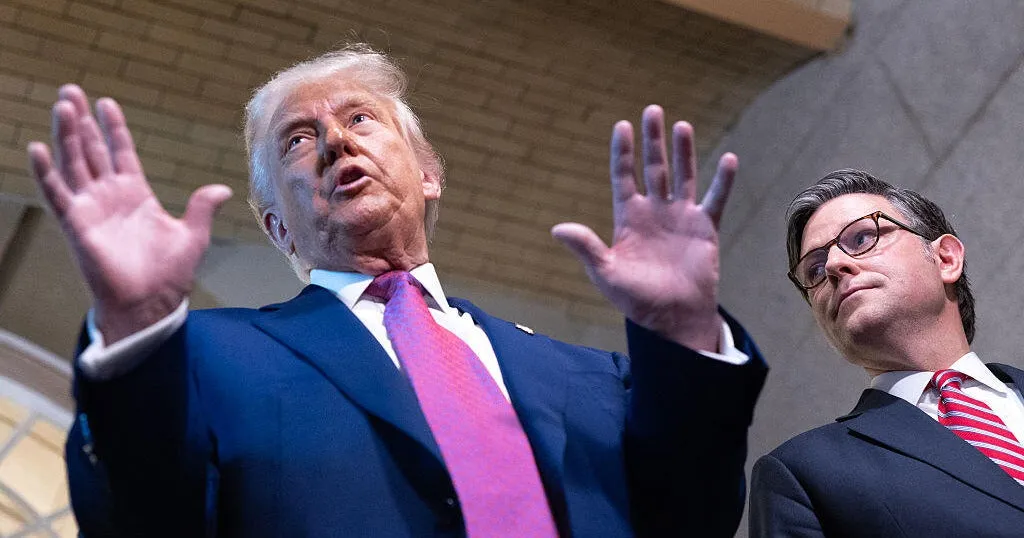Washington -- The White House on Tuesday sent a formal request to Congress to claw back funding for NPR, PBS and international aid that lawmakers had previously approved.
The package would cancel $9.4 billion appropriated by Congress, aiming to make permanent some of the Department of Government Efficiency's spending cuts. It focuses on slashing foreign aid, along with major public broadcasting entities, including NPR and PBS.
The $9.4 billion rescissions package includes $1.1 billion in cuts for the Corporation for Public Broadcasting, which provides funding to NPR and PBS. In April, the White House released a statement saying taxpayers had funded the two entities "for too long" and said they've "spread radical, woke propaganda disguised as 'news.'" PBS received $325 million in CPB funding this year.
The package also requests $8.3 billion in cuts to the United States Agency for International Development, or USAID. The foreign aid agency became a target of the administration, which worked to shutter it earlier this year. And Office of Management and Budget Director Russ Vought has argued that the foreign aid is not only wasteful, but that USAID has been pushing "weaponized cultural indoctrination" in other countries.
Each year, Congress approves funding to keep the federal government running before the funds are disbursed to government agencies and programs. The president can temporarily defer funds or withhold them altogether -- but only with Congress' approval.
The rescission process allows Congress to cancel funds that the federal government has not yet spent but has previously appropriated. And only discretionary funds can be rescinded, while mandatory spending, like Social Security and Medicare, cannot be.
In the Senate, rescission bills are not subject to the 60-vote threshold needed to advance most legislation in the upper chamber. Instead, they only require a simple majority.
The White House's Office of Management and Budget's rescission request kickstarts a process that gives Congress 45 days to act. First, the request goes before relevant committees for consideration, before moving to the full House and Senate for votes.
Republicans in Congress have been eager to get started on the rescission process, as deficit hawks rail against Washington's spending habits. And House Speaker Mike Johnson has pledged the House will "act quickly by passing legislation to codify the cuts."
"The House is eager and ready to act on DOGE's findings so we can deliver even more cuts to big government that President Trump wants and the American people demand," Johnson said last week in a post on X.
But whether Republican leaders can successfully maneuver the package through Congress remains to be seen. While rescission has frequently been used in Congress to reallocate unspent funds, requests from the White House come less frequently. And during the first Trump administration, the Senate rejected a rescission package sent by the White House requesting nearly $15 billion in cuts.
Meanwhile, fiscal hawks in Congress have been advocating for rescission to cut down on costs while a major legislative package key to Mr. Trump's agenda makes its way through Congress. That legislation, titled One Big Beautiful Bill, would allocate funding for tax cuts, border security and defense. But the price tag for that package, which at this point could add around $3 trillion to the national debt, dwarfs what lawmakers would get back from the rescission package.
Republican Sen. Rand Paul of Kentucky, who has been a vocal opponent of additional spending and especially a plan to raise the debt ceiling as part of the tax cut legislation, backs the rescission package, calling the funds "the low-hanging fruit." But he, too, noted that the impact on the deficit would be minuscule.
"This is very, very small," Paul said on "Face the Nation with Margaret Brennan." "It really doesn't materially change the course of the country."
